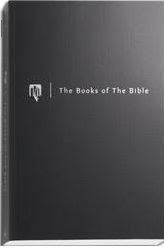 The Bible has 66 books of which there are 39 in the Old Testament and 27 in the New Testament. There are a total of 1189 chapters and 31173 verses. If you are interested in Bible trivia, you can check it out here. However, while the number of books is originally 66, the verse numbers are a recent addition, around the year 1448. It can be said that while the Bible is the inspired Word of God, the verse numbers are not. Sometimes, the reading of the Bible can end rather awkwardly if we were to follow strictly to modern segmentation of the Bible into respective frames called 'pericope.' A pericope is a set of verses that are grouped together if they present one coherent context. However, such delineation, no matter how honourable the intent contains a risk of reading the Bible out of context. For example, Romans 12:1 is one of the most popular verses preachers like to choose in their sermons. The word 'therefore' that starts the chapter is sometimes least emphasized. Essentially, after the reader has read the first 11 chapters of Romans, then can he understand the actual impact of Romans 12:1.
The Bible has 66 books of which there are 39 in the Old Testament and 27 in the New Testament. There are a total of 1189 chapters and 31173 verses. If you are interested in Bible trivia, you can check it out here. However, while the number of books is originally 66, the verse numbers are a recent addition, around the year 1448. It can be said that while the Bible is the inspired Word of God, the verse numbers are not. Sometimes, the reading of the Bible can end rather awkwardly if we were to follow strictly to modern segmentation of the Bible into respective frames called 'pericope.' A pericope is a set of verses that are grouped together if they present one coherent context. However, such delineation, no matter how honourable the intent contains a risk of reading the Bible out of context. For example, Romans 12:1 is one of the most popular verses preachers like to choose in their sermons. The word 'therefore' that starts the chapter is sometimes least emphasized. Essentially, after the reader has read the first 11 chapters of Romans, then can he understand the actual impact of Romans 12:1. Dr Gordon Fee (Professor Emeritus @ Regent College), once gave a talk on "Why Christians read their Bibles Poorly." He bemoans that Christians have largely lost the art of 'fine reading.' Not only that, Christians are not able to sustain attention over the long haul as a result of 'overstimulation' of their various senses in a modern technological era. He also called the problem that "Scripture is seldom read on its own terms." I take that to mean modern readers do not read the Bible as the original authors have intended. For example, the letter of Philippians is a letter. Can anyone of us read a letter only halfway, or to pick and choose parts of the letter to read? One of the problems is also "non-contextual individualization of verses" where verses are pulled out of their contexts in order to fit into our own contexts. That is not reading the Bible correctly. It is using the Bible according to our own wisdom.
One organization has decided to take up the challenge to help readers to read their Bibles better. It de-versed the Bible and sets them up into one book by itself. Eugene Peterson's paraphrase of the Bible, the MESSAGE, does not contain verse numbers. Popular demand chapters and verses won the day, so sometimes we can find the MESSAGE with verse numbers. I think this is a worthwhile project. See the difference here.

Even the way the books were arranged follows a more precise chronological order according to when they were written. For instance, Matthew is written after 1 Timothy! Check it here. I am going to get my hands on "The Books of the Bible." It makes a good solid one book read rather than random verse reads. It has no footnotes, no verse numbers and all the sentences of the chapters placed as if it is a novel. Currently, it is available only in the TNIV. I hope other versions will appear soon. Do check it out.
Thanks to Matt who first pointed me to this project at his blog.
ks
No comments:
Post a Comment